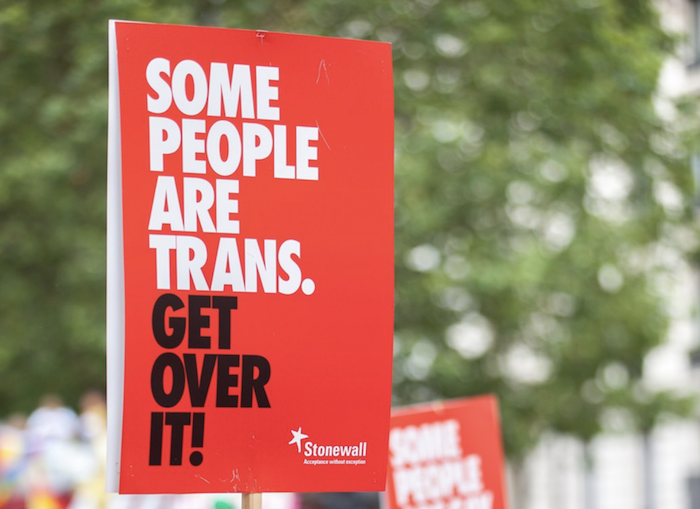
“If you find that when dating, you are writing off entire groups of people, like people of colour, fat people, disabled people or trans people, then it’s worth considering how societal prejudices may have shaped your attractions.”
What can we say about this farcical statement by UK Stonewall’s Nancy Kelley, quoted in Caroline Lowbridge’s BBC News article, addressing a trend many of us have known about for years: the shaming of lesbians by trans activists who refuse to accept yet another immutable and enduring reality: lesbians are attracted exclusively to other women. I can only say “guilty as charged” to the accusation that we are “prejudiced” in terms of our above-mentioned “attractions.”
Let me get this straight: after fighting gender stereotypes for decades and battling animosity towards lesbians overall, we now face a contemporary view of lesbianism that encourages young women to undergo experimental surgery to accommodate a delusion that leads to a lifelong fixation — both personal and medical — on their irretrievably wounded bodies. Further, the young women who somehow manage to dodge this trend are forced to run the gauntlet of a bunch of gender identity tyrants intent on telling them who it is appropriate to love. What a scream the irony of this deja vu moment would be if it weren’t so much worse the second time around.
One could replace the word “attraction” with “desire,” and remind Kelley that desire doesn’t give a shit what anyone deems appropriate, or correct, or even fair. In its blend of impulse, inclination, and yearning, desire is the seditious hold-out that stands outside the reach of all such bullshit snickering at all of us. Don’t the knuckleheads at Stonewall know that desire refuses to explain itself? Some things, thank heaven, are just inexplicable. Anyone who has ever experienced unrequited love knows how impervious “attraction” is to being pushed around. Human emotion can no more be broken down into units and reassigned elsewhere than the body can be. Such attempts — in both cases — are tantamount to messing with things that aren’t a matter of right or wrong: they just are and will always be — no matter what contortions or medical malfeasance they are put through.
The lack of imagination and simple ignorance of human nature displayed by Kelley and Stonewall is even more breathtaking than the obnoxious hubris they display in presuming they have the right to dictate the attractions of women, and then trash them if they don’t capitulate. Most disturbing is the dearth of imagination and the lack of reach concerning what it means to be human. They have convinced themselves that it is possible to reduce the complexities of human emotion to “prejudice.”
Such a short hop from domineering scold to dyed-in-the-wool despot, isn’t it? And the mandate is always the same: power. Break down the recalcitrant and bend them to your will. The problem is that there is nothing more stubborn than love, which, when it exists between women, asks nothing of men. No wonder the Big Brothers at Stonewall (for it is men, whatever they call themselves, who are in charge there, too) want to storm the lesbian barricades. Having made a good run at erasing women’s identity (and managing to convince thousands to refer to themselves as “cis” — as though all women “identify” with femininity), the lesbian is the last woman standing. Convince lesbians that trans women really are women and you’ve crossed the frontier.
In the novel, 1984 (is it any wonder Orwell is referenced so often these days?), Big Brother knew that he had not fully succeeded in bending Winston Smith to his will until he had manipulated and tortured him into uttering the words that betrayed his last hold-out: love. Lesbians are nothing if not hold-outs where love is concerned.
So take note, Stonewall (& Co.):
If you find that in policing the behaviour of others, you are attacking the reality and lives of entire groups of people, such as lesbians and women as a whole, it’s worth considering how your politics may have made you less a beacon of progress than an undateable authoritarian.
Brenda Brooks is at work on her third novel, the story of a woman in peril.
